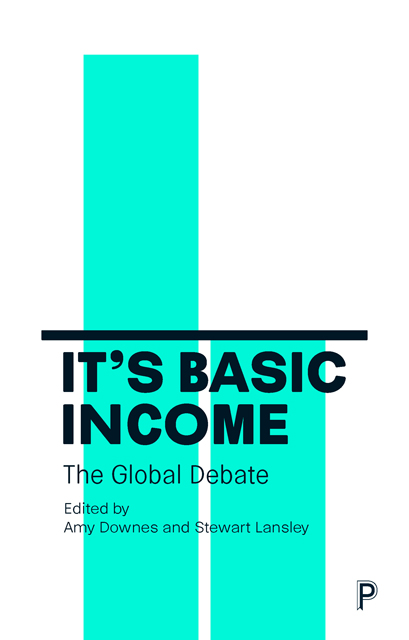7 - Women, motherhood and care
Published online by Cambridge University Press: 11 April 2023
Summary
‘The only answer is for the state, finally, to catch up to its responsibilities to those who currently work for free, risking personal and financial vulnerability to do important work for the benefit of society.’
For all the economic arguments for basic income and for all discussions about the right to leisure, art, music and basic subsistence, the feminist element of the case for basic income is one which speaks loud and clear for women. Why? Because it helps to address the dilemma of unwaged work done by women in the home, the family and the community.
We have had decades of feminism, yet we are now entrenched in a neoliberal capitalist economic system and continue to repeat a history in which ‘women’s work’ has been devalued, not counted and freeloaded upon by society. Western culture is increasingly individualistic and the goals of ‘independence’ and ‘self-sufficiency’ are practically unquestioned as benign. Yet the reality of human existence is that we are all dependent on others to some degree at different points in our lives and there is an accompanying need for the existence of those willing and able to meet the needs of the dependent. The young, the sick, the disabled, the elderly and the dying: no less human, no less worthy, yet reliant on care by others. However, those who care for them are often unwaged or low paid. We could call their labour ‘care work’ or ‘dependency work’.
A universal basic income goes some way to answer the question: what do we do about inevitable dependency work without rendering the carer (usually women) financially dependent on men or stigmatised as ‘welfare scroungers’ and thereby vulnerable and marginalised? It could address the dilemma of: ‘How can we ensure that women who work as carers outside the paid economy have full citizenship, economic autonomy and the right to self-determination?’ It could reflect the wishes of many women: ‘How can we enable women who would like to care for their children but are financially prevented from doing so to retain an income in order to do so?’
The problem is that having children is seen as a ‘lifestyle choice’, the implication being that having children is the equivalent of buying a puppy. Yet, women produce something absolutely crucial for the survival of our species: the human race.
- Type
- Chapter
- Information
- It's Basic IncomeThe Global Debate, pp. 45 - 47Publisher: Bristol University PressPrint publication year: 2018



